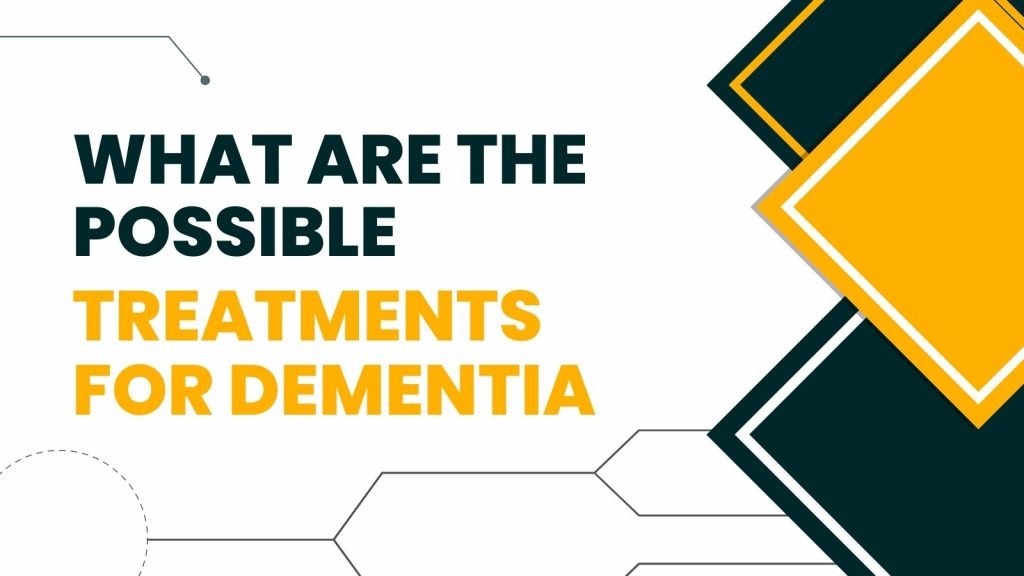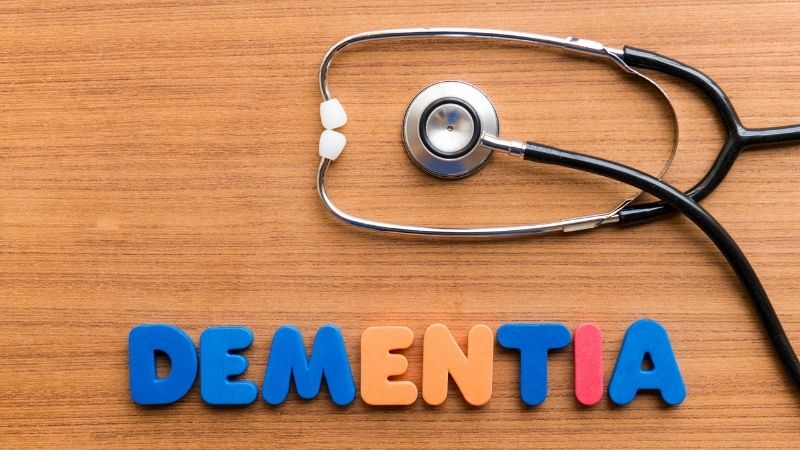Recently updated on January 20th, 2026 at 11:09 am
Dementia is a progressive disease with various signs and symptoms. Additionally, treatment for dementia is possible, which is why diagnosis is essential and can be done in multiple ways.
But suppose you’re someone who has just found out their loved one has dementia. You may be less concerned with the causes and more focused on how to manage symptoms and provide the best possible support using today’s integrated approaches.

What are the dementia treatment options available at your disposal? Questions like this are circulating in your head. We certainly understand how you feel, which is why we will comprehensively talk about everything you need to know about all possible treatments for dementia that you can opt for.
So let’s not beat around the bush and get right to it.
Factors to consider for dementia treatment
We know that dementia is caused by multiple conditions that can affect the brain. Therefore, treating dementia involves treating each specific disease, which can exist simultaneously. This makes the treatment of dementia quite complicated. There are plenty of fatal dementia cases, which you will have to keep in mind. As such, there is no singular dementia cure.
However, this does not mean that dementia symptoms can’t be effectively managed and quality of life improved through personalized, multi-modal care.
It simply means that the procedure for treatment is not as straightforward as you might think. Factors like medical history, genetics, age, and health come into play, making the process complex. Nonetheless, you must stay positive and try some of the treatments suggested here. Of course, you must do so while under the supervision of a medical professional and while following their guidance.
What is the treatment for dementia?
There are various treatment options out there with varying degrees of success. Even if they cannot cure dementia, they can, at the very least, help you treat and manage symptoms. Some of these treatment options for dementia care are:

Dementia Medications
A variety of medicines can be part of dementia treatments and help you temporarily deal with the symptoms of dementia. Most of them are used to treat people with Alzheimer’s disease but are certainly not restricted to it. Additionally, you can use certain medications to treat conditions with dementia-like symptoms and help cope with challenging behavior issues caused by dementia. Some of these medicines are:
Memantine
Also known as Namenda, it remains a core pharmacological treatment for various forms of dementia, including Alzheimer’s, Lewy body dementia, and mixed dementia. It is increasingly combined with non-drug therapies like cognitive rehabilitation for enhanced effect. It helps regulate glutamate, supporting memory and learning, with side effects that may include constipation, headaches, and dizziness.
Cholinesterase Inhibitors
These medicines continue to be essential for treating various types of dementia, such as Lewy body and Parkinson’s disease dementia, and are often integrated with personalized non-drug interventions. They work by preserving acetylcholine, a key chemical for nerve communication, memory, and judgment. Common side effects include diarrhea, nausea, loss of appetite, and sleep disturbances.

Dementia Therapies
Medicines can be helpful but should not be the only way to deal with dementia. Instead, it should only be a part of treatment for dementia patients. Therefore, including various forms of therapies and activities can be essential in helping dementia patients. These therapies can also be fantastic if you’re opposed to traditional medicine and prefer a more non-drug approach. At the very least, these therapies can be a source of pleasure for them, especially when dementia can be a frustrating condition. Some of these therapies are:
Cognitive Stimulation Therapy (CST)
This structured therapy program involves dementia patients with mild to moderate dementia participating in group exercises and activities. These are designed to improve patients’ memory, problem-solving and language abilities through games, singing, cooking, etc.
Reminiscence Therapy
This therapy involves discussing past events and personal memories using prompts like photos, music, or possessions. Innovations such as virtual reality (VR) are now used to create immersive reminiscence experiences, allowing patients to relive positive memories, which has been shown to reduce agitation and boost emotional well-being. This helps maintain cognitive connections and improve mood and engagement. This therapy can even be done in a group setting.
Cognitive Rehabilitation Therapy
This therapy involves working with a trained professional, and a patient’s loved one to achieve a personal goal. This can be anything like everyday tasks like using a mobile phone. In essence, this therapy involves getting patients to use working parts of their brain to help regions affected by dementia.
Beyond traditional therapies, technological advancements are playing a growing role in dementia care. Wearable devices can monitor health and detect early cognitive decline, while virtual reality (VR) facilitates immersive reminiscence therapy to reduce agitation. Digital platforms enable family engagement, remote monitoring, and enhanced reminder systems for daily routine management.
Lifestyle Changes
Dementia is a disease of the mind that can affect the daily habits and behavior of whoever is stricken with it. Therefore, making positive lifestyle changes can help deal with the effects of dementia and may also improve health and behavior. You can implement a range of lifestyle changes for great benefits. These are:
Exercise
Staying active with exercise can help slow down symptoms of dementia, like issues with thinking. Alternatively, it can also help with mental conditions caused by dementia-like anxiety and depression. The patient must exercise safely as different stages of dementia can affect their abilities in different ways. Patients may exercise in various ways, like joining a fitness class or simply walking.
Getting good sleep

Most of the symptoms of dementia tend to be worse during the night. Therefore, it is essential to follow an effective nighttime ritual that will encourage sound sleep. Keeping away from loud noises and distracting activities like watching television can help. We also suggest avoiding daytime naps as they may prevent patients from sleeping properly at night. Additionally, drinking caffeine during the night can affect your nighttime ritual, so limiting caffeine is a good idea. When going to sleep, avoid night lights as they may cause disorientation.
Keeping a calendar
Staying organized is crucial for dementia patients. Using both analog and digital calendar systems—including innovative reminder apps and devices—can help track events, activities, and medication schedules, improving daily orientation and adherence. These tools serve as mental exercises to counter symptoms and reduce caregiver burden.
Personalized care plans are now central to modern dementia care, tailoring activities and routines to individual preferences and abilities. Approaches like Montessori-inspired programs use hands-on activities to foster independence and dignity, while structured group cognitive stimulation therapy has shown sustained benefits in memory and communication over several months.
Alternate Medicine
People that do not like traditional medication can opt for alternative medicine. Several alternative medicine options include herbal pills, dietary supplements, and vitamins. For instance, some studies have found that regular exercise may help improve cognition in those with mild cognitive impairment (MCI). Similarly, dietary changes can also be beneficial; research shows that consuming specific vitamins (e.g., vitamin B12) and omega-3 fatty acids may help reduce risks associated with developing Alzheimer’s disease later in life. Finally, massage therapy has helped reduce stress levels among elderly adults with MCI or early stages of Alzheimer’s disease. These are touted to be effective by many people, but there is insufficient evidence to confirm it as such. Therefore, we recommend being cautious when using such medicines as they are not regulated and may not work.
While exploring treatments, it’s important to acknowledge broader challenges in dementia care, such as workforce shortages, care coordination gaps, and disparities in access. However, successful models like the Care Ecosystem have demonstrated improved patient independence and reduced hospitalizations through integrated support. Grant-funded programs, including the Alzheimer’s Association CDRI grants, are expanding respite services and tech-enabled innovations to aid the 12 million family caregivers across the U.S.
To sum up
There is no one-size-fits-all approach to treating dementia since each patient’s needs will vary based on individual circumstances. However, there are many possible treatments available that can help manage its symptoms and slow its progression over time – from medication options to non-medication therapies – so it is essential for elderly care service providers and families alike to explore all the possibilities like specialized care when considering treatment plans for someone with dementia. Finding the right combination of treatments is critical to helping those affected live a better quality of life, even if they have this condition.
Dementia is a disease that can affect the brain and be a distressing experience for those affected and their families. Therefore, most people are anxious to find out whether there are any treatments for dementia. We have seen various treatment options, but certain factors must be considered. These factors can consider how effective these treatments are, with some forms of dementia being incurable. We hope this proves insightful to you and helps you understand dementia. This may aid you in helping your loved one who has dementia to get better with time.
